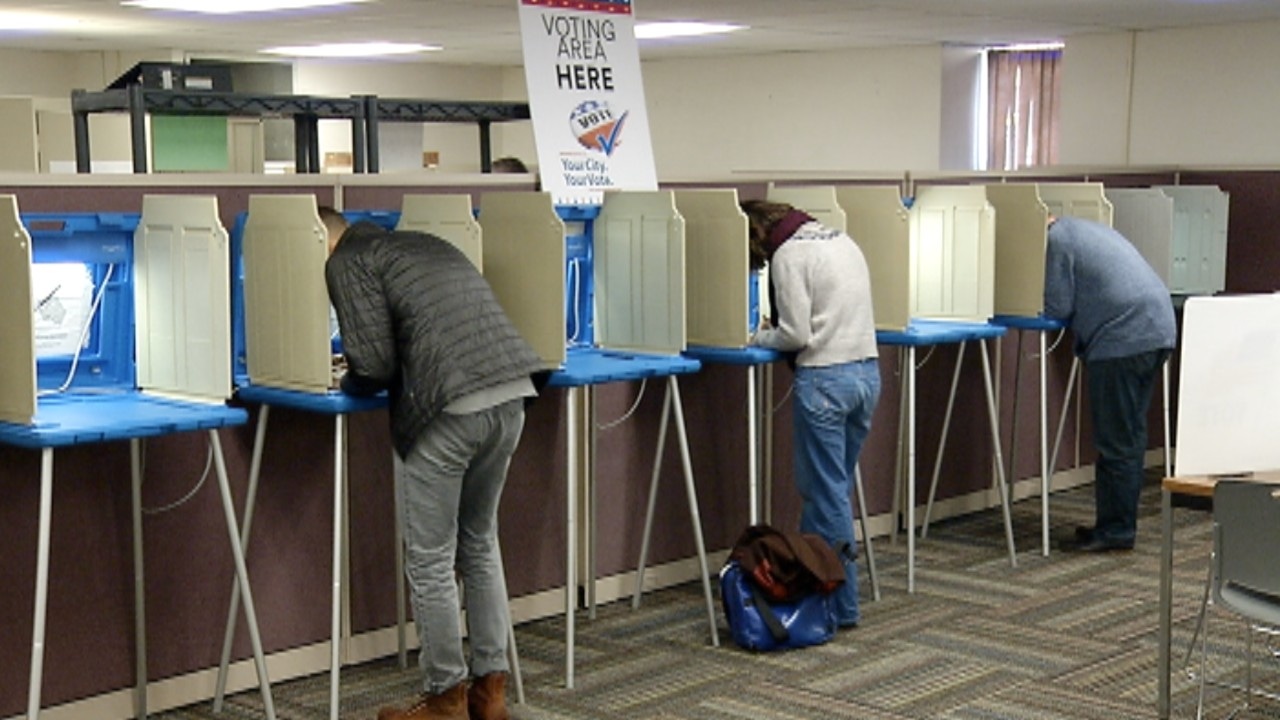Minnesota Supreme Court denies lawsuit to restore felons’ right to vote
As Minnesota lawmakers work on legislation that would restore the voting rights of felons who’ve completed their incarceration, the state’s high court has weighed in on the matter.
Wednesday, the Minnesota Supreme Court issued its ruling in a case pertaining to the same topic, upholding the state’s law.
Currently, any Minnesotan convicted of a felony isn’t able to vote until they’ve completed their full sentence, not just the period of incarceration.
Earlier this year, Minnesota Secretary of State Steve Simon said nearly 66,000 Minnesotans who’ve left prison aren’t able to vote. Additionally, Simon said 21 other states have laws that automatically restore citizens’ voting rights when they’re released from incarceration, a policy he’s urged Minnesota lawmakers to consider.
This year, Minnesota lawmakers have worked on that legislation, which has already cleared the Minnesota House of Representatives and appears on track to become law.

Voters cast ballots at a polling place. (KSTP/file)
But back in 2019, before that push at the Capitol, a group of Minnesotans sued the state, arguing that being denied the ability to vote while on parole, probation or supervised release amounted to “unconstitutional deprivations of their fundamental constitutional right to participate in the democratic process.” They also argued that the practice disproportionately disenfranchises people of color.
After a district court ruled against them, the group appealed but the Minnesota Court of Appeals also determined the practice doesn’t violate any of the constitutional provisions it challenged. However, the Minnesota Supreme Court said later in 2021 that it would hear the case.
In its opinion, the state’s high court agreed with the Court of Appeals that the law doesn’t call for automatic restoration of voting rights upon a person’s release from incarceration and the group didn’t provide enough evidence to prove that the current law violates the equal protection principle in the Minnesota Constitution. Therefore, it upheld the current law. However, the justices didn’t dispute everything in the group’s lawsuit and recognized state lawmakers’ ability to change the law.
“Although section 609.165, on the claim raised here, passes constitutional muster, we recognize the troubling consequences, including the disparate racial impacts, flowing from the disenfranchisement of persons convicted of a felony. The Legislature retains the power to respond to those consequences,” Justice Paul C. Thissen wrote in the opinion.
Justice Natalie E. Hudson disagreed with the court’s majority opinion, saying she doesn’t believe the section failed under the equal protection guarantee and adding, “The right to vote is too central to our democracy, and the constraints on that right are too perilous, for us to ignore.”
Despite the court’s ruling, state lawmakers still appear poised to change the law this session.
Follow the progress of that and other notable bills with KSTP’s Legislative Tracker.
“I am angered by the Supreme Court’s decision, which means I can’t vote until I am 71,” Jen Schroeder, one of the named plaintiffs in the case, said. “By ruling against our case, the Minnesota Supreme Court has said that what I am doing, who I have become, is not enough. I and 53,000 other disenfranchised Minnesotans deserve to be treated as full members of society, not barred from voting for 40 years.”
“We believe the law is discriminatory, leading to racial disparities in voting that in turn lead to political inequality,” American Civil Liberties Union of Minnesota staff attorney David McKinney added. “The criminal legal system’s goal is rehabilitation, redemption, and helping people rejoin their communities — this law clearly serves none of those purposes. The court’s ruling presents a golden opportunity for the Senate to join the House in demonstrating its belief in voting rights and end this disenfranchisement.”
Simon released the following statement regarding the court’s decision:
“The Minnesota Supreme Court has made it clear that the future of voting rights for Minnesota residents who have left prison behind lies in the hands of the legislature. While our office defended the law as it is currently written, I believe that the policy is long overdue for a correction. If a person is deemed by a judge or jury to be worthy enough and safe enough to live in our community, then it is entirely reasonable to allow that person to have a say about who governs them. This restoration of voting rights is good for all of us, because we know that when people have a sense of ownership in their community they are far less likely to commit another crime. I will continue to be a strong advocate for legislation, already passed by the House, that will allow those who have left prison behind to rejoin our democracy and vote in our elections.”